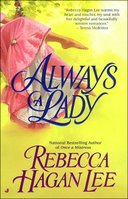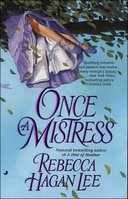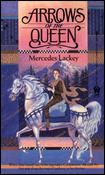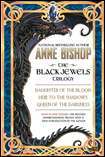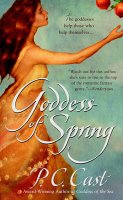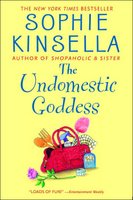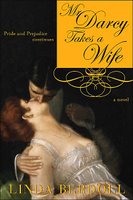 Author: Naomi Novik
Author: Naomi NovikPublished: March 28, 2006 (Del Rey)
Category: Fantasy/Historical Fiction
Series: Temeraire #1
Quote of Choice: I was hatched! From an egg!
I saw this book a few months ago at Barnes and Noble while shopping for books with Jennie and Julie. Jennie told me she had heard excellent things about this book; combine that with dragons, and I'm sold. I am a big fan of dragon books, starting with Patricia C. Wrede's Enchanted Forest Chronicles, followed immediately by Laurence Yep's Dragons of the Lost Sea, and then Anne McCaffrey's Dragonriders of Pern when I got to high school.
Novik has cleverly set her series during the Napoleonic Wars, where William Laurence, captain of the Reliant has just captured a French ship. This ship happens to have some very valuable cargo aboard, namely a dragon egg. In this version of the Napoleonic Wars, dragons exist and some have even been domesticated (sort of) by humans. For France and England, the dragons are their air corps, since airplanes haven't been invented yet. Dragons are manned by crews of aviators, on its back and in a contraption hanging beneath its belly. The crew will throw bombs and some dragons even have the ability to spit acid or breathe fire.
Unfortunately, England's air corps is not as large as France's, and therefore, this egg is extremely valuable. However, it's about to hatch, and there are no members of the air corps around. Without a candidate for the hatchling, the dragon could become feral, but none aboard the Reliant have been trained for the air corps. Apparently, it's not the most reputable of His Majesty's forces, due to the society the riders keep. Dragons scare the living daylights out of the ordinary citizens, so riders must live apart from society, and those ordinary citizens wind up making up horrible stories about the riders. Anyways, Laurence randomly selects a member of his crew to be the dragon's candidate, but when this elegant black hatchling emerges, he wants nothing to do with the chosen one. He makes a beeline for Laurence instead, and changes his life forever.
To a certain extent, it's very much like the "impression" ceremony in Anne McCaffrey's Dragonriders of Pern. Instead of speaking telepathically, dragons have a speaking voice. The dragon bonds with his/her rider, but unlike McCaffrey, dragons can be convinced to accept a new rider should their current rider die. In Pern, dragons would commit suicide if their rider died.
Temeraire's (what Laurence named the dragon) bond to Laurence isn't some flimsy thing. When the air corps gets wind that this untrained boob of a navy man is in possession of a rare Chinese dragon, they try to replace Laurence by lying to Temeraire. Of course, it doesn't work out, and Temeraire and Laurence become a formidable team.
The book covers their training period and their trials as the odd team out. Laurence is treated differently because he used to be in another division of the king's forces. Temeraire feels different because he doesn't know what his breed is really capable of, and he looks so different from all the other dragons.
I loved this book so much that I even cried on the subway when I got to a sad part. When I finished, I had that urge to obtain the next book in the series as soon as possible, just to find out how Temeraire and Laurence are doing. Unfortunately, finishing a book on Christmas evening doesn't make it very easy to go book shopping.

